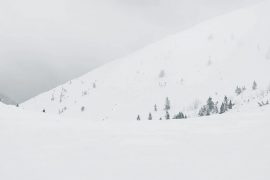1
He appears on the inside, then the outside. No, that’s not it; that’s impossible. He glides in through the misty barrier, then glides back out. Now I’m inventing things. He’s just here, in front of me, looking at me as if I were the one drifting in and out, the scent of rain in his hair, his fingers stained with mud, his eyes full of the afternoon sun. Then again, he’s there, outside, and the swelling of my senses fades. Still, I’m aware of him, as if the wall and door were a mist and he’s standing outside, his knocking the silence of smoke on smoke. I stand just inside the door, looking through the peephole. He doesn’t glance at his watch or press his ear to the door. He notes the irony of the red-bird knocker. Nothing could be more flightless, more silent. My listening has become keen in the presence of his. He is so complete that he is and isn’t here. His flickering reveals everything and nothing, but my listening and seeing can’t catch it all. I fumble every message that passes through my oak door made to last for centuries. They are like birds that die as they fall haphazardly through my hands. He sends them and sends them. They merge into the hardwood floor beneath my feet and disappear.
2
She calls me on the phone. It has been too long. The texture of her voice is so beautiful I can hardly stand it. It’s a bow on a string, and a hand holding the bow that knows exactly how to move. Not music precisely, but the modulation of something invisible, something infinitely desirable. That’s all bullshit. I can’t say how her voice sounds, what it can say not in its words but just by existing, by the movement of the bow on the string. I tease her for not calling for so long. She laughs and I can feel what she withholds, or rather that she withholds, something. There is a reason that she holds it by a string perched on her finger as she speaks. It wishes to fly through the line, over lakes and rivers and mountains and cities and cultivated fields. It wishes to gather the pain and desire under its wings and migrate to me, but the wind blows in its face and it can’t reach me. Every time she releases it, it stays in flight between us and remains at the peak of its arc, lost in the perfect stillness of its tension. So she doesn’t let it fly. She laughs. She tells me she will release it again some day, when I am no longer the wind.
3
That wasn’t it, though she wants me to think so. It is already here. It doesn’t need to fly or walk, or run or crawl or roll in the mud, though it may like to do so. I think it likes mud. It likes dirt and air and water because they remind it of itself, though they are distant cousins at best. Poor cousins. I like that I don’t have to pack it; it just goes with me. I like that I don’t have to open a door, though it’s always there too. I like that I don’t have to call it up and pretend that I didn’t really want to, or that I’d been wanting to for a long time but was just too busy, or that I wanted to but was just too proud to do it. I like the absence of all of that, the absence of desperation, obligation. I like the absence of its presence, and the presence of its absence. But that’s ridiculous. This is not a conundrum, a zen koan. I can’t tell you what it is because to say it is to create something other than what it is. Because to say it is to push the molecules of air away with my breath as if they don’t mean anything, then to draw them back, knowing that they do.
JIM PETERSON was born in Augusta, Georgia, reared and educated on the banks of the Savannah River in western South Carolina. His poetry collections include The Man Who Grew Silent, An Afternoon With K, The Owning Stone, The Bob and Weave, and Original Face. His novel, Paper Crown, is now available on Audible. His poems have won the Benjamin Saltman Award from Red Hen Press, an Academy of American Poets Award, and a Fellowship in Poetry from the Virginia Arts Commission. A number of his plays have been produced in regional theaters. Until his retirement in 2013, he was Coordinator of Creative Writing at Randolph College and was the Pearl S. Buck Writer-in-Residence there in the Fall of 2017. Many years ago, he was founder and editor of the poetry journal Kudzu and later was editor of The Devil’s Millhopper poetry magazine and press. He is now on the faculty of the University of Nebraska-Omaha Low-Res MFA Program in Creative Writing and is professor emeritus at Randolph College in Lynchburg, Virginia, where he lives with his charismatic corgi, Mama Kilya.
Like what you’re reading?
Get new stories or poetry sent to your inbox. Drop your email below to start >>>
OR grab a print issue
Stories, poems and essays in a beautifully designed magazine you can hold in your hands.
GO TO ISSUESNEW book release
We’re thrilled to release our first novel into the world. Alligator Zoo-Park Magic by C.H. Hooks has been called “A new spin on the mystical, mythical south.”
GET THE BOOK



